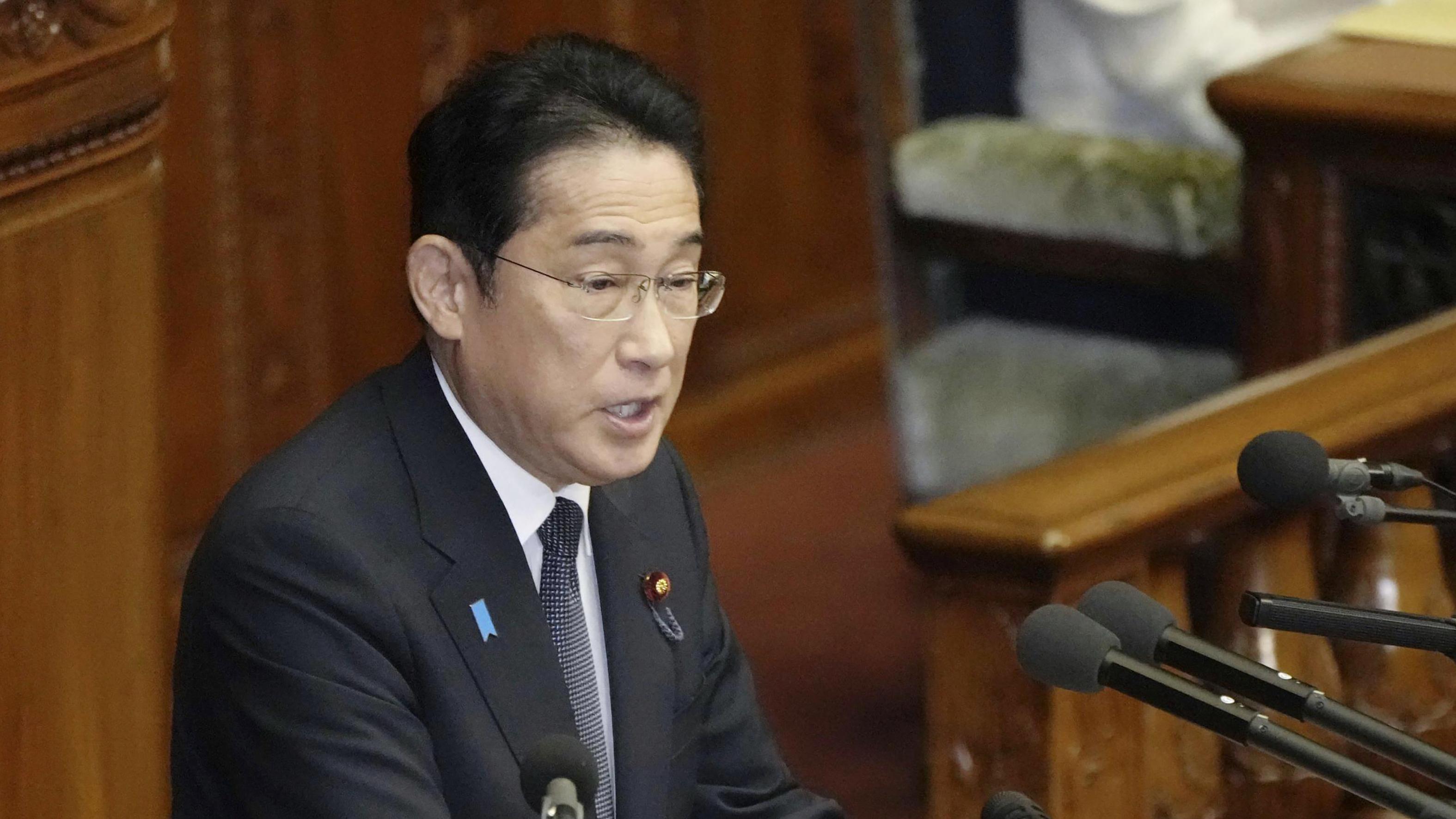 Japan's Prime Minister Fumio Kishida delivers his policy speech at the parliament in Tokyo, Oct 23, 2023. (KYODO NEWS VIA AP)
Japan's Prime Minister Fumio Kishida delivers his policy speech at the parliament in Tokyo, Oct 23, 2023. (KYODO NEWS VIA AP)
TOKYO - Despite record low approval ratings for his cabinet, Japanese Prime Minister Fumio Kishida said on Thursday he will not dissolve the lower house for a snap general election within the year, local media reported, citing government sources.
The Japanese cabinet has seen sluggish approval ratings, with its support rate dropping to 28.3 percent as shown in a survey by national news agency Kyodo over the weekend.
Kishida is expected to face a ruling Liberal Democratic Party presidential election in autumn 2024 while four-year terms of current lower house members will expire in October 2025 unless a prime minister dissolves the chamber
It reached a record low since Kishida took office in October 2021 by plunging from 32.3 percent in the previous poll conducted in October.
ALSO READ: Japanese PM Kishida reshuffles cabinet amid slipping support
The prime minister told the press on Thursday that he intends to focus on economic measures to tackle rising prices for the time being rather than dissolving the House of Representatives, the lower house of the parliament.
To fund a new economic stimulus package proposed by Kishida, which is worth over $113 billion, the government is seeking passage in November of a draft supplementary budget, which is set to be endorsed by the cabinet on Friday.
After the draft supplementary budget is passed by the parliament, there will be little room to call a snap election by the end of the year, Kyodo reported Thursday.
The resignations of two members of Kishida's cabinet after it was revamped in September, one following the revelation of an extramarital affair and the other over a violation of the election law, prompted ruling party lawmakers to call for the postponement of a lower house dissolution, the report added.
READ MORE: Cabinet reshuffle: Japan PM to swap foreign, defense ministers
Kishida is expected to face a ruling Liberal Democratic Party (LDP) presidential election in autumn 2024 while four-year terms of current lower house members will expire in October 2025 unless a prime minister dissolves the chamber.
The prime minister intends to carefully determine the appropriate timing for dissolving the lower house with an eye on the presidential election set for next autumn and his cabinet's approval rating through early next year and beyond, according to national broadcaster NHK.


